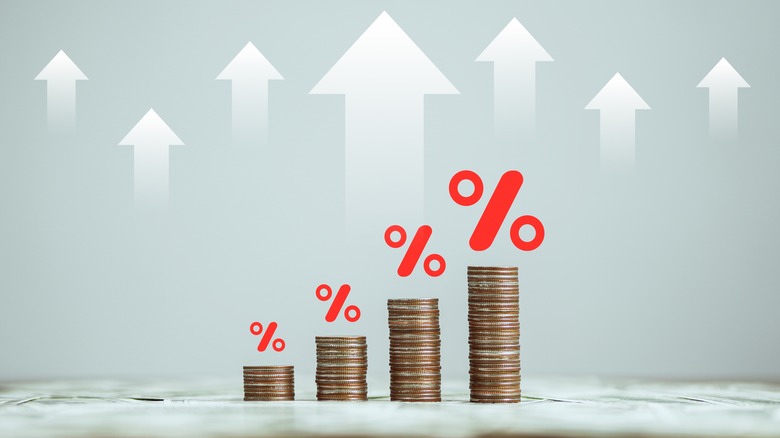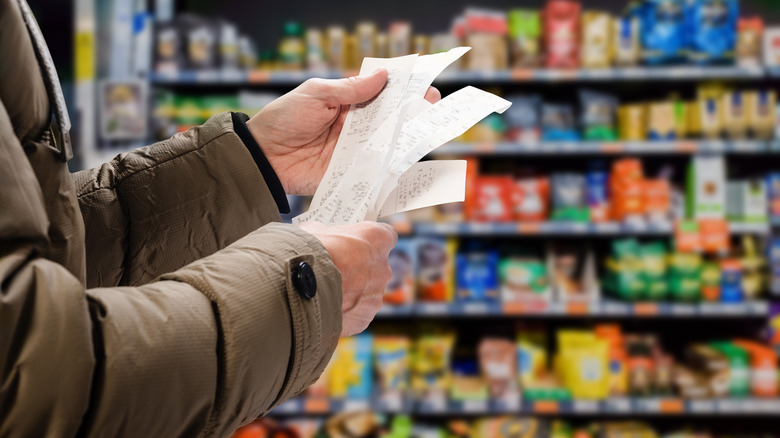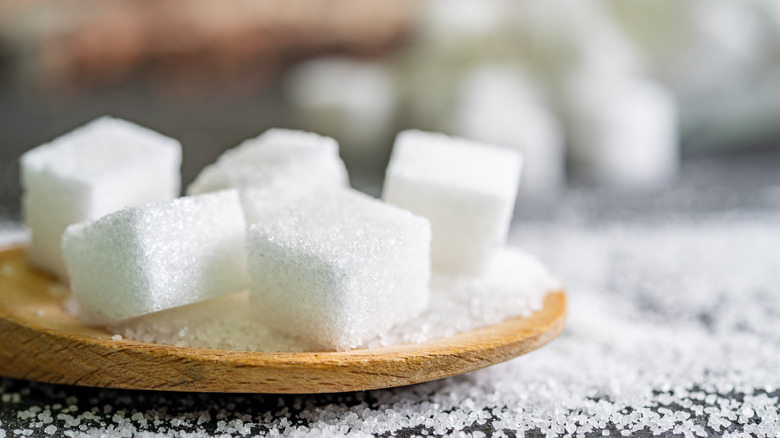British Food Inflation Has Broken Yet Another Milestone
Unfortunately for shoppers in the United Kingdom, it doesn't look like inflation will be stopping any time soon. Prices at the grocery store have now hit an all-time high, and they could keep rising from here. The BBC cites rising energy costs as a key factor of inflation rates; shortages of oil and gas caused by the Russia-Ukraine war contributed to increased prices, despite heightened demands after the impact of the COVID-19 pandemic.
As prices continue to rise, consumers may find themselves paying extra for some household essentials. While housing costs have seen the steepest price increase, groceries followed close behind. Dairy products, sugar, and eggs have reportedly seen the largest price increases at the grocery store.
In fact, prices in the U.K. have now hit another milestone. Inflation rates in the United Kingdom have reached an all-time high, as compared to the rates of the past nearly two decades.
Shoppers will see higher grocery bills
The U.K.'s inflation rate was at 8.4% in February, reports Reuters, but it grew to 8.9% in March — the largest-ever increase on record since The British Retail Consortium (BRC) began keeping records in 2005. Prices have risen roughly 15% over the past year alone. Unfortunately, according to the BRC's Chief Executive, Helen Dickinson, it doesn't seem like prices will come down anytime soon. "Shop price inflation has yet to peak," she said to the outlet.
British shoppers have seen shortages with quite a few crops. European and North African production of fruits and vegetables have seen lower growth rates. Import costs also rose, driving prices up for produce grown outside the United Kingdom. Tomatoes, cucumbers, and peppers have especially seen this impact. Climate change may also have contributed to smaller harvests, with colder weather freezing and killing crops.
Additionally, shortages of sugar have caused price increases for many products.
Sugar plants have taken a production hit
The British Retail Consortium's (BRC) Chief Executive Helen Dickinson cited rising sugar costs as one of the main reasons inflation has continued to grow, according to Reuters. Sugar beet plants can be damaged by aphids carrying yellow viruses that destroy the plants' leaves, reports the BBC, with nearly 70% of the country's sugar beet plants at risk.
As a result, the United Kingdom has temporarily authorized the use of thiamethoxam, a pesticide typically banned throughout the European Union due to its harmful properties to bees. To protect bees, farmers who opt to use the pesticide will not be allowed to grow any flowering plants for nearly three years.
The previous pesticide ban may have contributed to damaged crops, Reuters reports, and farmers have produced less sugar than they would have liked. Rising costs of energy may have also made it more expensive to produce the crop, forcing farmers to grow less.


